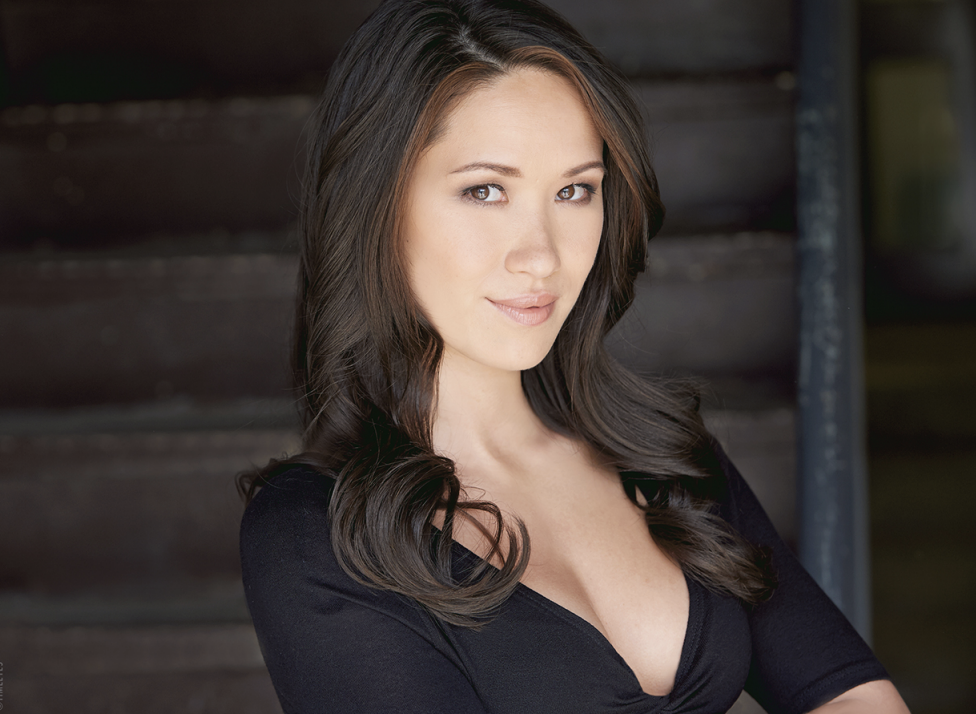
Allie Chung
Ricepaper is eager to support this new talent, as it does with Asian Canadians in all fields, and especially the arts—a discipline which traditionally has been one of the hardest for Asians to break into. Although still a relatively emerging actress, Alli Chung has already guest-starred on some TV shows, such as “The Expanse” and “Dark Matter. In Saw 3D: The Final Chapter, Chung had a brief role and appearance as well, a small but studious start in the American film industry.
Chung had just spent the last three months in Vancouver shooting UnREAL, Lifetime’s drama TV series about a fictional reality TV show. Once she arrived home to her native Toronto, Chung’s management team contacted Ricepaper.
Working with Chung’s busy audition schedule, we finally had a chance to interview Chung.
Born and raised in Toronto to a Cantonese dad and a mom of mixed Swedish and Irish descent, Chung says she has a modelling background and has always taken acting classes, but only for fun; she says she never seriously considered becoming a professional actress. She was taking an acting class for fun, she says, when her acting teacher suggested that
Chung works as a session runner or casting assistant. Session runners help casting directors
field herds of actors auditioning for various projects. At the time, Chung had graduated with a degree in marketing from Concordia University and was working as a temp in an office job.
“I hated it,” she says.
So she jumped at the opportunity to earn an income outside of working in an office. One day, her casting director-boss noticed that Chung fit the “specs”—industry jargon for casting requirements—and suggested Chung audition for the commercial. She did, and eventually won the part. More commercials followed, and Chung soon found herself with an agent, and auditioning for film and TV roles. The rest is history.
This includes Chung’s starring role as The Instructor on Mariner, Thyrone Tommy’s 2016 short film that was selected for the Toronto International Film Festival. Another project was Chung’s recent appearance on Season 4 of UnREAL, a fictional show about a reality TV series, and the tactics the producer utilizes to manipulate the actors, to create drama. Chung plays
the first Asian female contestant on the fictional show. She is proud of being part of this project and working with the predominantly female production team.
Chung says the entertainment industry, more so in television than in film, is beginning to move away from limited Asian roles. Also, the industry shows increased awareness of diversity within Asian ethnicities. For example, in past years, Chung would receive casting roles asking for “an Asian”. Now Chung has noticed that roles will be more specific in what type of Asian ethnicity, such as asking for “mixed race”.
Opportunities for Asian actors are growing, but still not ideal.
“There’s not a lot of room for more than one Asian,” says Chung, of film and TV roles. Chung says when she finds out that an Asian actor has already been cast in a project, she knows it is unlikely a second Asian will be cast, and thus narrows her hopes of getting something on the same production.
Chung was impressed with a recent casting call she auditioned for, with an Asian animation series: Producers would only audition Asian actors for the roles. This was significant because even though the actors would not be shown onscreen, the producers wanted authenticity in the casting.
Chung is in the same artistic dilemma as many Asian actors: Traditional, stereotypical Asian roles in big films bring exposure, but not the satisfaction of exploring dramatic range. Chung doesn’t want to just do the traditional stereotypical “Asian roles”, like being the “doctor, the engineer, or the mathematician”. Chung wants to be able to play different roles that are not related to ethnicity.
But she is savvy about the realities of the entertainment industry. In the end, it’s about making profits. Reliable storylines with reliable stereotypical characters, such as the current trend of superhero films, also yield reliable profit margins.
Films exploring intriguing storylines and diverse roles are an actor’s dream, but creative risks equal profit risks for movie producers, who are eager to deliver profits to financial investors. This is why some actors, she explains, will invest their own money in producing their projects.
Jo-Ann Chiu is a Vancouver writer. She is working on a children’s novel for middle grades.